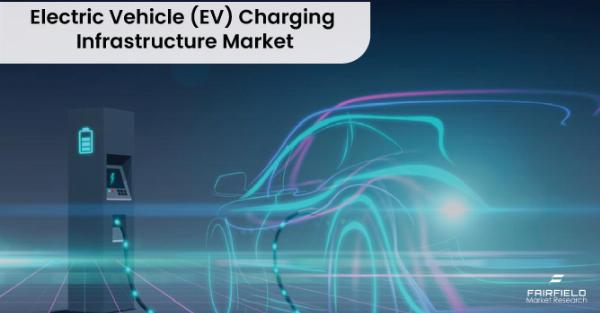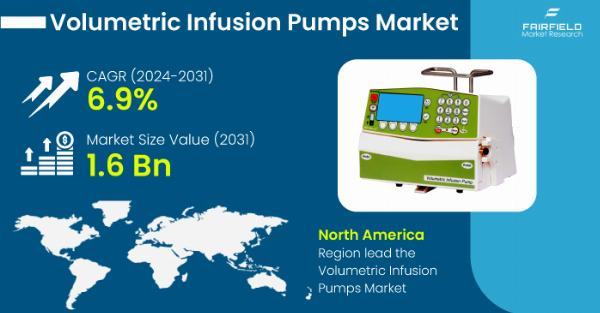EV Charging Solutions: Trends and Market Forecast

The International Energy Agency's latest Global EV Outlook Report has underscored a momentous surge in global electric vehicle (EV) sales, surpassing 2.1 million units in 2019. This remarkable growth has catapulted electric cars to constitute 2.6% of global car sales, signaling a robust trajectory for the EV market. Concurrently, the EV charging infrastructure sector is set for substantial expansion, supported by a 7.6% increase in public electric vehicle supply equipment within just three months of 2020, as highlighted by the National Renewable Energy Laboratory.
For More Industry Insight: https://www.fairfieldmarketresearch.com/report/electric-vehicle-ev-charging-infrastructure-market
Governments worldwide are intensifying efforts towards carbon neutrality, unveiling ambitious policies and lucrative subsidies to bolster EV adoption. In Europe, initiatives such as fuel standards and Clean Vehicle Directives are pivotal, while the French government's generous €12,000 incentive for EV purchases exemplifies proactive measures driving market growth. Similarly, countries like India, the US, France, and the Netherlands are implementing policies aimed at fostering an electric mobility revolution, thereby enhancing the potential of the EV charging infrastructure market.
Declining Costs Propel Market Expansion
Research reveals a significant drop in both hardware and installation costs for EV charging stations, down by 50% from 2011 to 2013. This reduction is attributed to the adoption of dual chargers over single units, facilitating a viable business environment for manufacturers. As more companies from diverse industrial backgrounds enter the market, the EV charging infrastructure sector witnesses unprecedented growth opportunities.
However, compatibility issues persist as a notable challenge, with varying plugs and outlets across different EV models hindering universal access to charging stations. The lack of interoperability remains a critical limitation, impacting consumer confidence and potentially stalling market expansion efforts.
Rising Demand for Fast Chargers Amidst Pricing Challenges
Fast-charging infrastructure, particularly popular in commercial settings, has seen soaring demand. Despite the increased affordability of charging stations, premium pricing for fast chargers like Chademo remains a barrier. In the US, installation costs can range from $4,000 to $51,000, posing a significant cost challenge for widespread adoption. Nonetheless, the deployment of Level 1 DC fast chargers and Level 2 AC stations continues to drive growth, alongside an uptick in slow charger installations at public and residential locations.
Asia Pacific Emerges as a Focal Point
Asia Pacific is poised to dominate the global EV charging infrastructure market, buoyed by supportive government policies in economies like China, India, and Japan. Japan, for instance, boasts a higher number of electric charging stations than traditional petrol pumps, highlighting robust EV adoption trends. Similarly, India's ambitious EV plans aim for a million EVs by 2024, underscoring the region's strategic significance in the global market landscape. European nations such as the UK, France, and Belgium are also enhancing EV interoperability across the continent, further propelling market growth.
Navigating Through the Impact of COVID-19
The COVID-19 pandemic profoundly impacted the automotive industry, disrupting production and sales across the board. While logistical challenges posed significant hurdles, the European market witnessed a surge in electric passenger car sales, surpassing China during the pandemic. Moving forward, recovery efforts are expected to bolster EV production and subsequently drive advancements in charging infrastructure.
Strategic Collaborations Drive Market Expansion
Key industry players are consolidating their market positions through strategic mergers and acquisitions. Companies like ChargePoint have partnered with automotive giants such as BMW and Volkswagen to expand fast charger networks across the USA's western coast. Simultaneously, companies like AeroVironment, Inc., BP Chargemaster, and ABB are leveraging strategic alliances to enhance their market foothold.
Automotive manufacturers including Volkswagen Group, BMW Group, and General Motors are also investing in charging infrastructure to reduce fleet emissions. Collaborations between manufacturers and service providers, such as Eaton Corp and Green Motion car rental, further exemplify synergistic efforts driving market expansion through integrated energy solutions.
Note: IndiBlogHub features both user-submitted and editorial content. We do not verify third-party contributions. Read our Disclaimer and Privacy Policyfor details.







